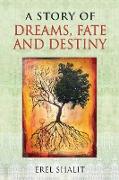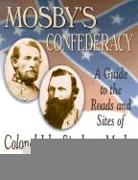A Story of Dreams, Fate and Destiny
BücherAngebote / Angebote:
In this rich and poetically written book, Erel Shalit "calls attention to the dream and its images along the nocturnal axis that leads us from fate to destiny." He takes us on a journey from ancient history, beginning with the first documented dream, that of Gilgamesh, to Adam and Eve and the serpent, to Joseph in Egypt as the Pharaoh's dream interpreter, through ancient Greece to the Asklepion, to Swedenborg's visions, to our world today through the eyes of Freud, Jung, and science, and finally to the process of active imagination to reveal the workings of Mercurius and the transcendent function.As Dr. Shalit moves between cultures, he adds historical accounts of the many customs of working with dreams-our long history of how humans have paid close attention to this constant phenomenon for thousands of years. Scattered throughout the pages are engaging stories, legends, myths, and the roots of words that take meaning deeper. The chapters include dreams-historical dreams and the dreams of his patients. He works them, showing us how to squeeze the precious liquid from each one that can lead to a resolution of opposites and a state of understanding so profound-and sometimes so simple-that we witness how wholeness emerges from the psyche through this process. This accessible book is a reminder of the foundational work that leads to our greater consciousness and a destiny well-lived.Table of Contents Preface by Nancy Swift Furlotti A Poem by Erel Shalit, My Fathers' House Part 1. A History of the Dream: Fate and Destiny from Gilgamesh to Jung A. Introduction B. The Initial Dream: The Dream of Gilgamesh C. The Writing on the Wall: Nebuchadnezzar D. Ancient Greece: The Discourse of Dream E. Anima Between Fate and Destiny: Swedenborg F. The Dream of Hysteria G. Fate and Destiny Part 2. Soul and the Experience of Matter I. The Dream-Poetry of the Soul A. Introduction B. From Brain to Play C. Dreams and Ensoulment D. From Nature to Soul E. Soul and Reflection II. The Moisture of Dreams A. Gnosticism B. Adam's Eve C. The Serpent's Birth from Lilith's Womb D. The Serpent and Satan Part 3. What does Joseph Add to the Dream? Psychological Footnotes Along Joseph's Path to Egypt A. Visions of the Night B. Joseph the Dream Interpreter C. Joseph in Potiphar's House D. The Butler and the Baker E. Pharaoh's Dreams: The Principle of Opposites, Enantiodromia Part 4. Incubation, Being and Healing: A Therapy of Dreams A. Amethyst and Healing I. Incubation at Healing A. Incubation B. Asklepieion C. The Healing Symbol D. Chiron: The Wounded Healer II. The Self and the Great Mother A. The Serpent Part 5. The Ecology of Dream and Psychoanalysis I. Freud and Jung A. Freud 129 B. Jung II. A Picture from the Unconscious A. Compensation B. Dream and Symbol C. The Symbolic Perspective D. The Dream and its Semiconscious Concomitants E. The Prospective Function in Dreams Part 6. Active Imagination and the Transcendent Function I. Active Imagination A. The Diary B. The Descent C. The Golden Chain D. Active Imagination II. The Transcendent Function A. Mercurius B. The Bridge to Wholeness Conclusion, Final Poem Bibliography Index
Folgt in ca. 10 Arbeitstagen




